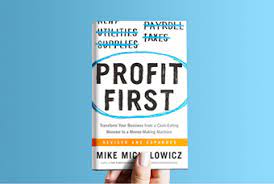Profit First: Adapting Your Start-up's Financial Strategy in Changing Economic times
Oct 20, 2023
As most leaders who work in this start-up space know, the macroeconomic changes this year have really changed the thought process of growth over profit.
With market dynamics being more unpredictable than ever, a "Profit First" approach is not just becoming more interesting, for some, it's become essential for sustaining start-ups and fast-growth businesses.
Rethinking Traditional Growth Strategies
Previously, start-ups' standard procedure was focusing on exponential growth, often at the cost of immediate profitability.
This 'growth at all costs' strategy is under scrutiny as the current economic climate underscores the necessity of financial resilience.
The added pressure of not being able to fundraise as easily as we did back in H1 of 2022 has also meant that cash runway is one of the main KPIs for Founders and CFOs.
The new golden phrase? "Getting to breakeven."
It's a strategy that fortifies your business against unforeseen market fluctuations, securing your cash runway, and by extension, your start-up's longevity.
Understanding 'Profit First'. What is it?
The 'Profit First' methodology, a brainchild of Mike Michalowicz, takes a behavioural approach to accounting.
Instead of the classic formula of Sales - Expenses = Profit, it rearranges the equation to:
Sales - Profit = Expenses.
This subtle recalibration in handling finances champions the idea of prioritising profit, effectively ensuring it's not an afterthought but a non-negotiable line item.
Why 'Profit First' Resonates with Start-ups Now More Than Ever
-
Cushioning Cash Runway: Start-ups usually operate on limited financial reserves. "Profit First" necessitates that a percentage of revenue is allocated to profit, implicitly extending your cash runway. This strategy provides a financial cushion, critical for navigating the unpredictable challenges that start-ups often encounter.
-
Streamlined Expenses: When profit is extracted upfront, businesses are compelled to operate within the means of the remaining available funds. This constraint can spark creative, cost-effective solutions and lean management practices, indispensable skills for any start-up looking to survive and thrive in today's competitive environment.
-
Immediate Breakeven Point Visibility: By continually setting aside a portion of revenue as profit, reaching your breakeven point becomes an attainable, transparent objective. This clarity is empowering for start-ups, demystifying financial goals, and fostering a culture of fiscal responsibility and strategic planning.
However, a word of caution: 'Profit First' isn't a one-size-fits-all solution. Its application should be customised to suit your start-up's unique financial landscape, taking into account variables like industry nuances, market trends, and business model.
Adapting 'Profit First' to Your Start-up
How then, amidst these challenging economic times, can start-ups adapt principles from 'Profit First' for their benefit?
- Useful for Budgeting scenarios: It's worthwhile looking at this method as a budget scenario. If you started with a blank piece of paper and asked the business - what does "Profit first" look like? If we only had x in expenses, what would we spend it on? It's an interesting exercise and would highlight what is essential and what isn't. It also streamlines the thinking of where does the business want to go?
-
Variable Profit Percentages: If following the formula of profit first, instead of a fixed profit percentage, your start-up could benefit from adjusting profit allocations, scaling it relative to revenue levels. This dynamic approach accommodates fluctuating income streams, a common occurrence in early-stage start-ups.
-
Quarterly Reviews: Regular financial reviews are integral. Analyse your expense categories and revenue streams quarterly. Not only does this keep you in tune with your business's financial health, but it also allows for agile adaptations to your 'Profit First' approach as your start-up evolves.
The economic shift doesn't signify an end to growth; it symbolises the evolution of growth strategies. It's also a way of reviewing how the company could get to breakeven. It also gives the business an opportunity to decide what is important to the business. This method almost forces this kind of thinking.
By embracing methodologies like 'Profit First,' start-ups can place themselves in a position, capable and emerging resilient, profitable, and poised for sustainable growth.
Links:
- Get your FREE Guide: Stepping into the role of Finance Director or CFO
- Register for the mini-course, Upgrade your Management Accounts and get noticed by the business
- Work with me in the Financial Leadership Foundations course that includes monthly Q&A sessions where we can discuss all of your questions and how to apply your learnings to your current role.
- Work with me as a Founder needing guidance and support from experienced Finance leaders. Take a look at our guide on Outsourced bookkeeping.


